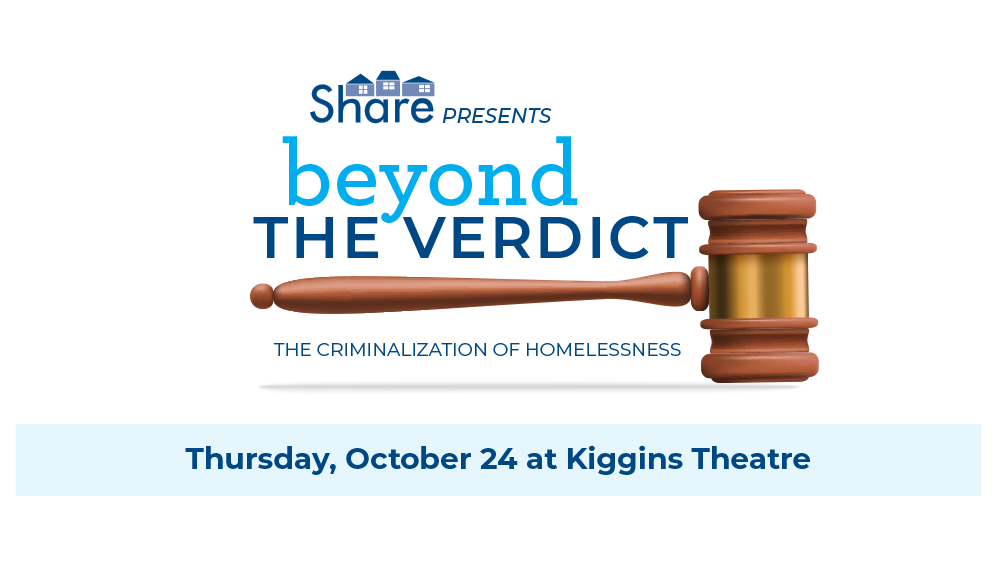On Thursday, October 24, Share hosted an event at Kiggins Theatre featuring three panelists to talk about the implications of the Johnson v. Grants Pass ruling for Clark County.
-
Ed Johnson, Director of Litigation for Oregon Law Center
-
Andy Silver, CEO of Vancouver Housing Authority
-
Assistant Chief Nilsen, Vancouver Police Department
Click above to listen to the audio of the event.
Johnson v. Grants Pass (Oregon)
On June 28, 2024, the Supreme Court ruled on their finding of the Johnson v. Grants Pass (Oregon) case determining that people experiencing homelessness can be arrested and fined for sleeping outside when there are no safe alternatives.
The Supreme Court has given cities and states across the U.S. permission to punish people who are forced to sleep outside, even when they have no other safe option. A ruling like this does nothing to end homelessness and punished people for existing in public simply because they have nowhere else to go.
Stephen Berg from the National Alliance to End Homelessness put it perfectly when he said,
Allowing unsheltered homelessness to be a crime, even when there is no shelter, would mean more people with criminal records: making it harder to get a job, harder to rent an apartment and harder to have time to address barriers when life is filled with court appearances and jail time.”
What criminalization won’t do is end unsheltered homelessness.
Martin v. Boise:
On September 4, 2018, the 9th Circuit Court of Appeals affirmed that the state may not “criminalize conduct that is an unavoidable consequence of being homeless—namely sitting, lying, or sleeping on the streets” when there are more homeless persons than available shelter beds or in the absence of other adequate alternatives. Alternatives must be practically accessible to a given individual, considering disability, religious beliefs, or other restrictions. The 9th Circuit reasoned that sitting, lying down, and sleeping in public is unavoidable conduct that is inseparable from a homeless person’s status when they have no other place to live. To punish that conduct is akin to punishing a person’s homeless status – a result that cannot be tolerated under the 8th Amendment.
However, the Martin v. Boise ruling also determined:
- Cities are not required to build or provide shelters for persons experiencing homelessness.
- Cities can continue to impose reasonable time, place, and manner restrictions – even on people who are homeless, have a place to find shelter, and don’t wish to use that shelter.
- Limitation to city only – indicates regional cooperative not permitted. For Cities to get credit for services, they must be in the jurisdiction of the municipality.
This ruling was upheld by the US Supreme Court on December 16, 2019 when the US Supreme Court denied a petition by the city of Boise to review the Martin v. Boise case.


